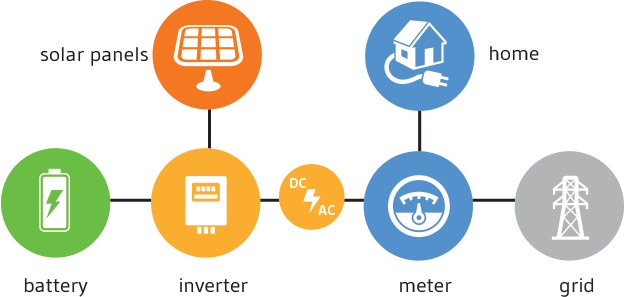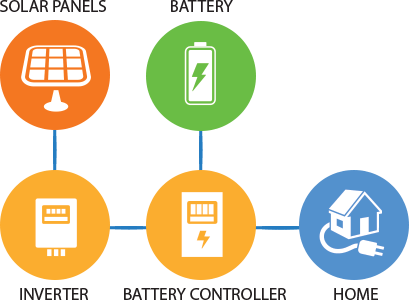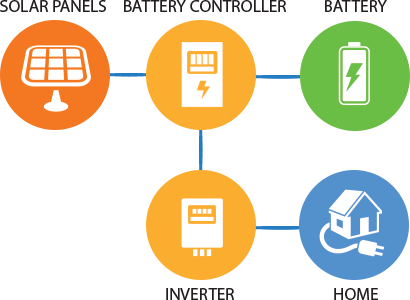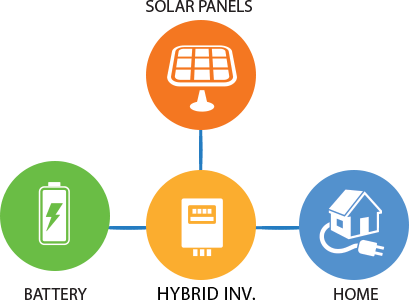
Save more than just power with battery storage
Solar battery storage works by storing excess solar production during the day for use at night. This is more cost-effective than selling it back to your retailer during the day at a cheaper rate. On a time of use tariff, you can also purchase grid power during cheaper periods, reducing how much you purchase during peak periods. Battery systems can also be configured to provide power in an outage. There are a few different types of storage systems like Hybrid inverter, AC Coupled and DC Coupled solutions. Our consultants can help you pick the right one for you.20
Types of Energy Storage Systems

DC Coupled Storage
Installed between the solar panels and inverter, this system senses when excess power is being produced and redirects it to the batteries. Later, when you are consuming more power than you’re producing, this power is then released into your inverter. One of the advantages of this system is that power is stored in the batteries before it is converted into AC, saving on unnecessary conversions later on. A limitation of this configuration is that you’re unable to draw power from the grid and store it for use later on. It also can’t be configured to provide power in a grid outage. This solution, however, is cost-effective, efficient and usually quite easy to retrofit into existing systems.
AC Coupled Storage
AC coupled storage is the most common type of storage. While not as efficient or as cost-effective as storing solar energy than DC coupled, AC coupled solutions have significant advantages over DC coupled. AC coupled storage can draw power from the grid, enabling homeowners purchase power at cheaper rates, ensuring you don’t draw from the grid at peak times. AC coupled systems can also be configured for battery backup and can store excess solar energy. AC coupled systems work independently of solar power systems, so they’re completely retrofittable and also allow you to draw on other energy sources. While expensive, many of these are used today, making it a proven technology.


Hybrid Inverters
Hybrid inverters are purpose-built for solar and batteries, providing significant advantages. Hybrid inverters are technically DC and AC coupled solutions, so you get the benefits of each. Firstly, you can store power in the battery before it is converted to AC, saving on unnecessary future conversions. As is it also AC coupled, you can still incorporate features like battery backup and storing power during cheaper times. All the monitoring is also done from one unit, so you don’t have to worry about separate monitoring packages for both your storage and solar systems. We are now seeing more and more of these units as they a great fit for residents looking to incorporate solar and storage.
